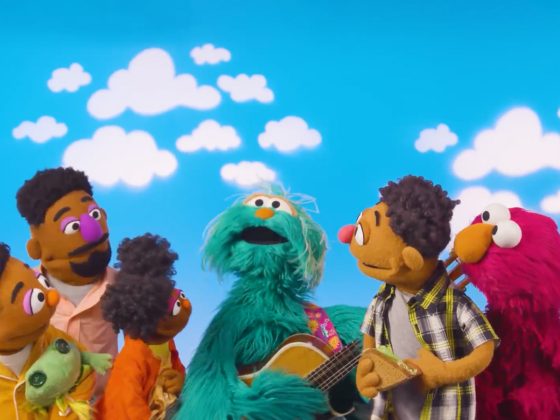
My Body, My Brain Song with Elmo and Friends
It's all connected! Healthy bodies help support our healthy brains so that we can feel good inside and out.
Mental health is part of the big picture of health — healthy minds and bodies are all one! When children take care of their bodies through movement, rest and sleep, and nutrition, they’re also taking care of their brains.
Share this video with children and move along to the music (you can also print this lyric sheet to sing along anytime).
To deepen your child’s exploration of the brain-body connection, try talking through some of the main ideas in the song, like movement, sleep, and nutrition. Try saying:
- Put your hands on your head! Our brains are inside our heads. Your brain is amazing! You can’t see it, but it’s very important. It’s growing fast, just like the rest of your body.
- How are you feeling right now? Calm? Excited? Our brains let us feel, name, and talk about our feelings. Our brains send messages to our bodies to help us know when we are joyful, tired, sad, curious, angry (and many other feelings).
- Your brain is special. Our brains let us learn, listen, talk, make things, imagine, read, write, and make choices. Everyone’s brain is a little different; our brains are part of who we are.
- Let’s name some people we love. Our brains let us make friends. Our brains allow us to share, care, and enjoy the good, warm feelings we get when we spend time and cuddle with the people or animals we love!
- Look around: What do you see? Close your eyes: What do you hear? Our brains help us use all our senses to explore.
- Let’s get up and hop, hop, hop. Skipping, sliding, dancing, and learning to move in new ways are all thanks to our brain and body working together.
- So how do we take care of these amazing brains of ours? To explain the importance of the brain-body connection, you might offer these movement, nutrition, and sleep ideas:
Moving Our Bodies
- Moving helps our bodies and brains to grow and learn new things.
- Moving our bodies also helps us sleep better.
- Sharing our feelings with our body helps us to stay healthy too! We might express our excitement by jumping up and down, shaking out our nervous feelings, or stretching slowly when we’re feeling sad.
Eating Well
- To grow healthy bodies and brains we need foods such as fruits and vegetables.
- Healthy food gives our bodies and brains energy and helps them grow healthy and strong. Some foods, like avocados, are great at giving our brains energy!
- Eating nutritious foods keeps our bodies and brains healthy. (Together, name “anytime foods” like fruits and vegetables, that you can have each day. Name “sometimes foods” like cake and cookies that you only eat once in a while.)
Sleep & Rest
- Your brain is growing so fast that you need lots of sleep and rest, even more than a grown-up!
- Even when we are sleeping, our brains are growing and changing. Just like our bodies and brains need food to give us energy for the day, they need sleep and rest. When we don’t get enough sleep or rest, it can be harder to learn and play.
- Our brains work a little differently when we sleep — one way is that they let us dream!
- Being tired can make us feel grumpy! When our bodies and brains are rested, we are more likely to feel happy, calm, and caring.
- By paying attention to how we feel, we can take care of our brain and body by napping or taking a quiet rest. Taking rest breaks is a great way to keep playing and learning.
- Let’s get into child’s pose and notice how our brain, body, and breath can slow down as we rest!
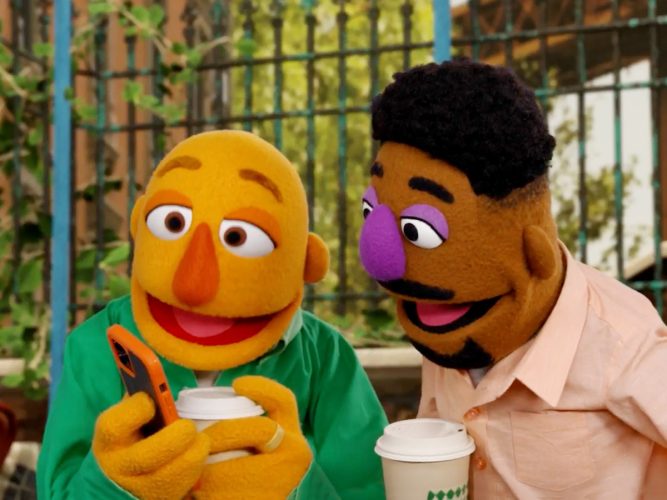
Learn Along the Way
Watch this video to see how Elijah and Daniel navigate changes in media and technology with a positive attitude.
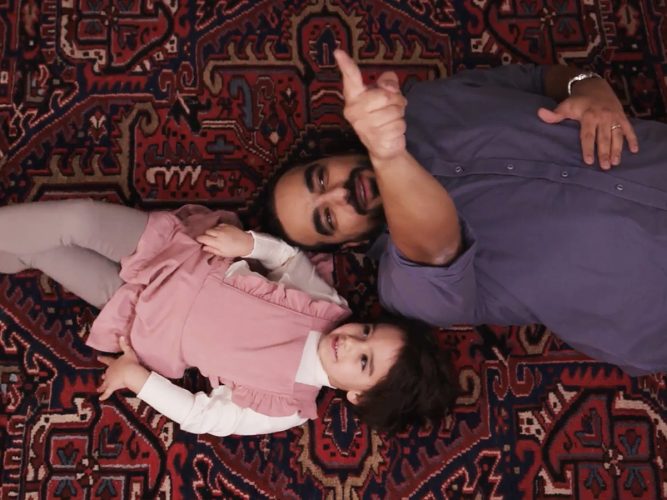
We’re Connected
Watch this video to discover habits to support digital well-being for families.
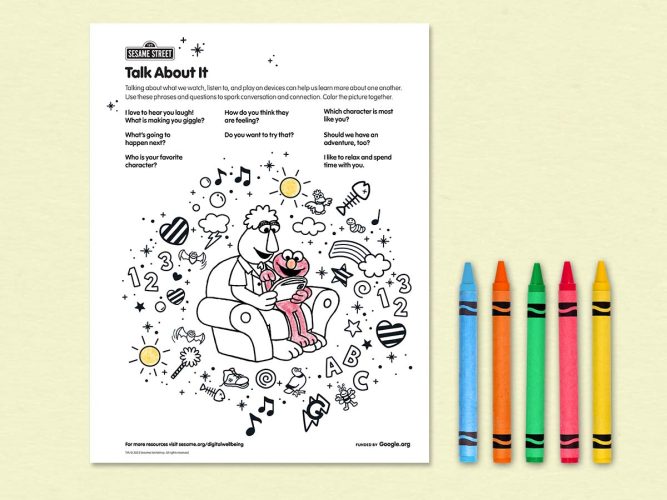
Talk... and Color! Adult-child Coloring Page
An activity with tools, tips, and playful ideas to empower families to foster digital well-being and develop healthy habits related to media and technology.
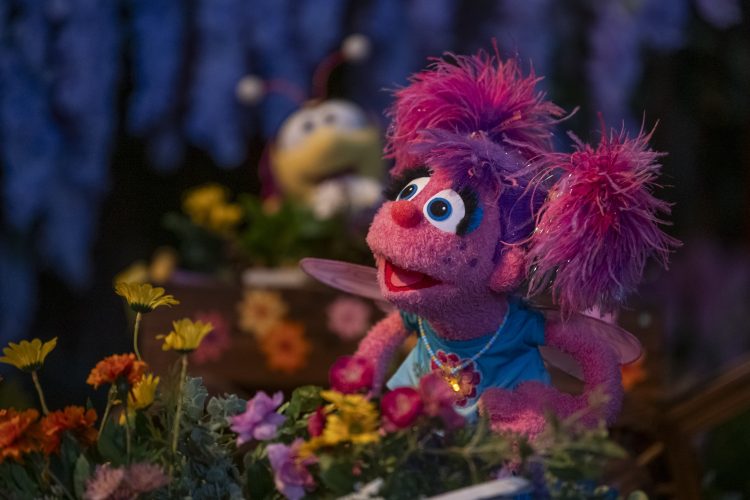
Watch and Play: Abby's Magical Beasties
Watch this episode and explore ways to extend the learning at home.
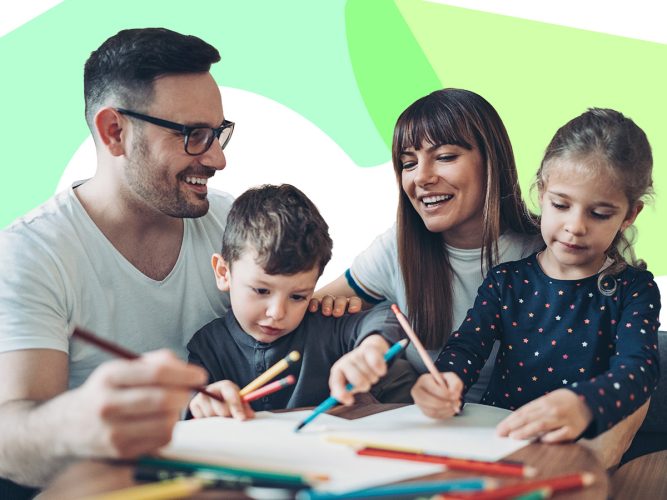
Unplugged: Creating Device-Free Family Moments
When children and grown-ups spend time together, especially without media, children benefit in so many ways. Explore these tips to nurture meaningful moments and support digital well-being in your family.
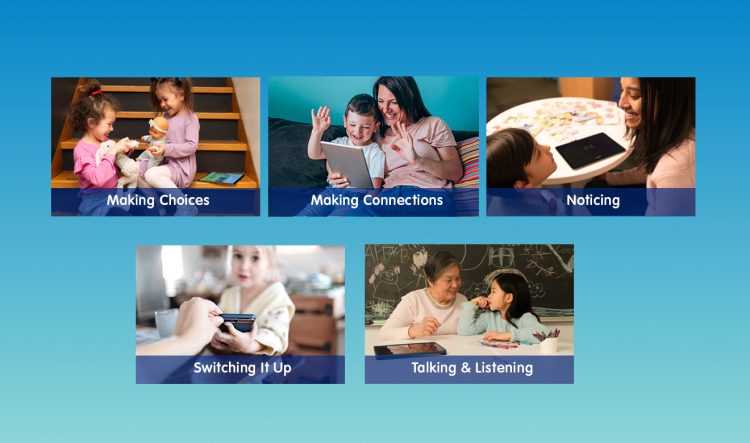
Tech Talk
An activity with tools, tips, and playful ideas to empower families to foster digital well-being and develop healthy habits related to media and technology.
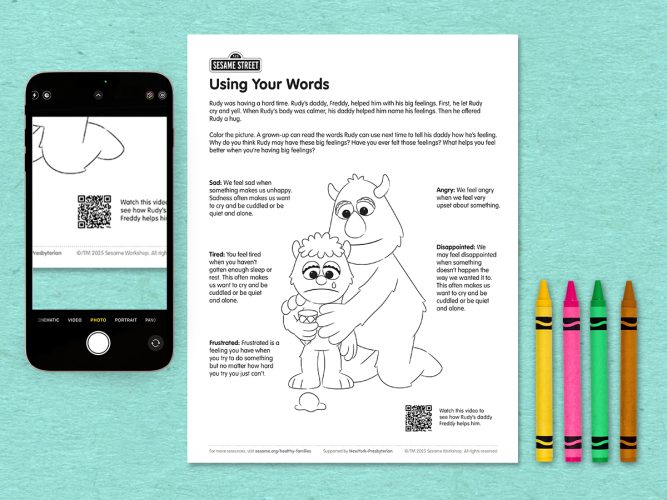
Using Your Words
A coloring page helping children explore words for big feelings.
